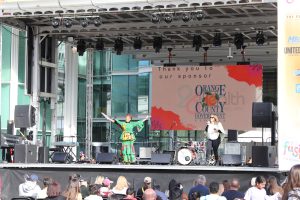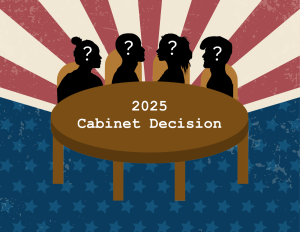
Cheap food grown in the Global South is increasingly easy to purchase in the United States. With the physical distance and levels of the supply chain between consumers and producers, it becomes difficult for the average shopper to recognize the injustices surrounding the production of their food.
Bananas, coffee, chocolate, and so many other products remain cheap by cutting out proper compensation for farmers and growers. Fair Trade organizations work to ensure agricultural communities and their surrounding environments are not exploited by large corporations and they invest to allow continued sustainable production.
The biggest initiative of Fair Trade organizations is ensuring that producing communities are compensated for their labor and able to improve their livelihoods. Organizations do this by setting minimum prices on products to act as safety nets to cover the costs of sustainable agriculture.
Trade unions are best able to bargain for better wages and working conditions in agricultural communities. Organizations also distribute premiums to communities to provide the resources to improve equipment and convert to organic farming as well as funding schools, scholarships, clinics, and other social services.
Fair Trade products also guarantee the protection of other equitable social standards. Child labor work is considered dangerous for a child’s health and development and interferes with their leisure and education. Often child labor is rooted in poverty and the children are at high risks of slavery and trafficking. Fair Trade labels certify that child labor is not used in their products. Gender equality is another pressing issue in agriculture with women accounting for most of the agricultural workforce but seeing very little of the profits they earn, not owning the land they work, and being denied education, training, and access to credit.
Fair Trade labels directly support women growers and commit to ending gender-based discrimination, intimidation, and sexual harassment. These labels also protect workers’ rights through prevention policies, reporting violations, training farmers and managers on human rights standards, monitoring trafficking patterns, and working with governments and other organizations. Additionally, Fair Trade labels promote climate resiliency in farming communities and tackle climate change through carbon credits.
As a campus, Rollins College is a member of the Fair Trade Campaigns which work to educate and promote intentional purchasing that benefits workers’ rights and the environment. Our campus stores sell fairly traded and certified products to help our community make a more conscious decision on the agriculture we choose to promote.
Fair Trade labels and brands we promote on campus include Equal Exchange, Fairtrade America, Fair Trade USA, Fair Trade Federation, and Fair for Life. It’s easy to be separated from the reality of the food we eat, especially those grown outside of the country, so the Rollins Sustainability Program promotes Fair Trade once every semester through an event. This spring, we are selling Green Grams for Valentine’s Day.
Reusable tote bags will include Fair Trade certified chocolate, tea, sugar, bracelets, and recycled paper hearts as well as the option to include a handwritten note. Sustainability will be selling Green Grams from Feb. 6 – 10, and they can be picked up on Valentine’s Day. Keep an eye out for our tabling event and announcements in the coming week for more information.






Comments are closed.